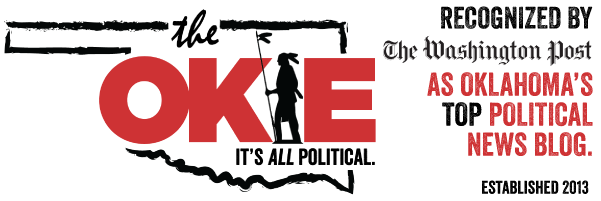OKOGA: Legislature’s Oil & Gas Tax Grab Slows State’s Growth Potential
FOR IMMEDIATE RELEASE
OKOGA: O&G Industry is Being Treated Worse Than “Sin Taxes,” Stalling State’s Growth Potential
OKLAHOMA CITY (Oct. 26, 2017) – The Oklahoma Oil & Gas Association’s (OKOGA) president, Chad Warmington, released the following press statement about current proposals at the state capitol to increase the state’s gross production tax (GPT) rate again after three consecutive years of GPT increases:
“Changing Oklahoma’s permanent gross production tax rate is short-term thinking with long term negative impacts for our state. Such action makes Oklahoma more dependent on a volatile source of tax revenue, places thousands of jobs at risk, and prevents Oklahoma from achieving its full economic recovery any time soon. The oil and natural gas industry’s drilling activity drives growth for the state’s corporate and personal income taxes, property taxes, sales taxes and more.
Without robust drilling, there is less money for mineral owners, education, roads and bridges, and other vital public services. The state has increased GPT for three consecutive years, with the most recent increase of $141 million taking effect less than four months ago. We are being treated worse than the ‘sin taxes’ that have a large majority of support from Oklahoma because of it reducing unhealthy behaviors. Another GPT increase is a loss for Oklahoma and a victory for activists who are eager to see Oklahoma’s potential for domestic energy dominance come to a grinding halt.”
- Over the past three years, the state has increased taxes on the oil and natural gas industry in the following ways:
In 2017, the oil and natural gas industry will pay an additional $141 million in tax increases by ending all GPT rebates and by increasing the GPT rate by 300% on roughly 6,000 older wells. - In 2016, the oil and natural gas industry paid an additional $120 million in tax increases when the state placed a cap on the economically at-risk well rebate.
- In 2015, the state increased taxes on horizontal drillers by 100 percent when it implemented the permanent two-tiered GPT rate for all wells of 2 percent for the first 36 months and 7 percent for the remaining life of the well, on average more than 30 years.
- In 2015, the state also eliminated more than half of the GPT rebates, six of the 11 rebates of which some had existed dating back to the early 1990s.
According to the Oklahoma Tax Commission, the state’s current effective GPT rate today is 4.4 percent. This places Oklahoma slightly above the regional average when comparing it to calculations published in the State Chamber of Oklahoma Research Foundation’s report that remains the only apples-to-apples comparison of GPT rates in energy producing states.

Background
The Oklahoma Oil & Gas Association, founded in 1919, is the oldest energy trade association in the United States. Nearly a century later, the association remains dedicated to the advancement and improvement of the oil and natural gas industry within the state of Oklahoma and throughout the nation. It is a non-profit association composed of oil and gas producers, operators, purchasers, pipelines, transporters, processors, refiners, marketers and service companies which represent a substantial sector of the oil and natural gas industry within Oklahoma. The activities of OKOGA include support for legislative and regulatory measures designed to promote both the well-being and best interests of the citizens of this state and a strong and vital petroleum industry within the State of Oklahoma and throughout the United States.
###

